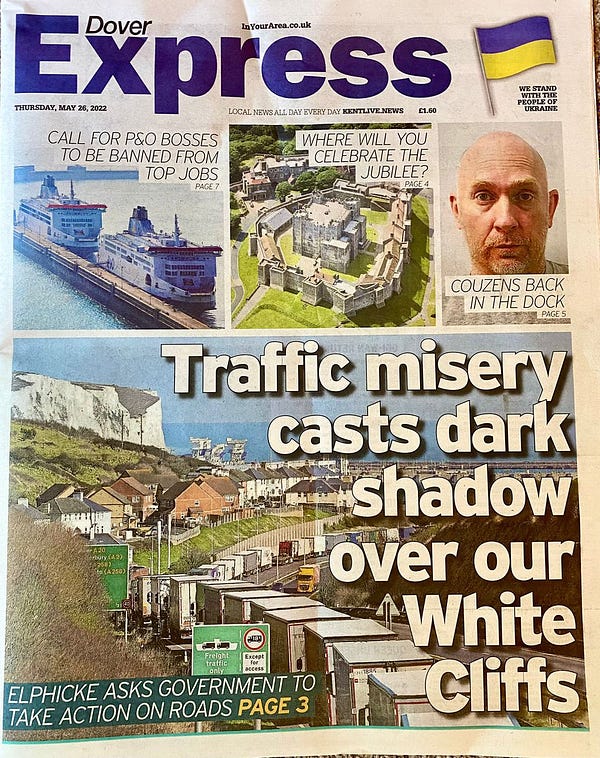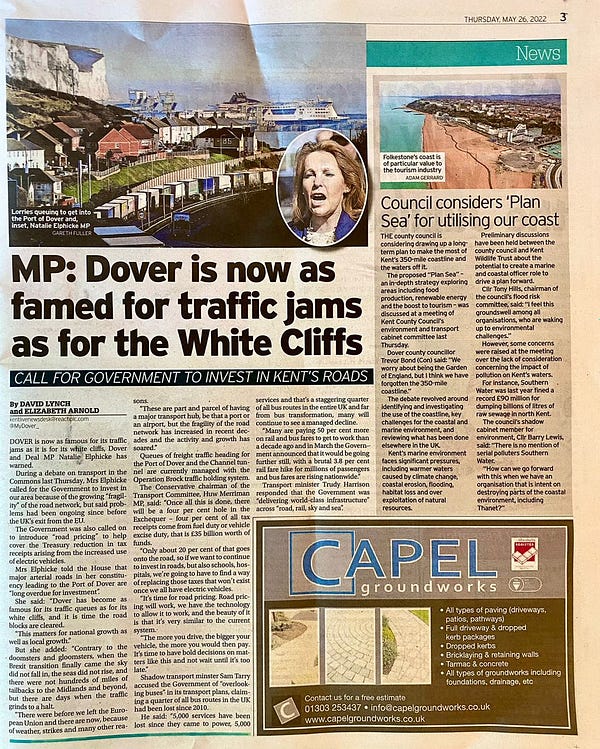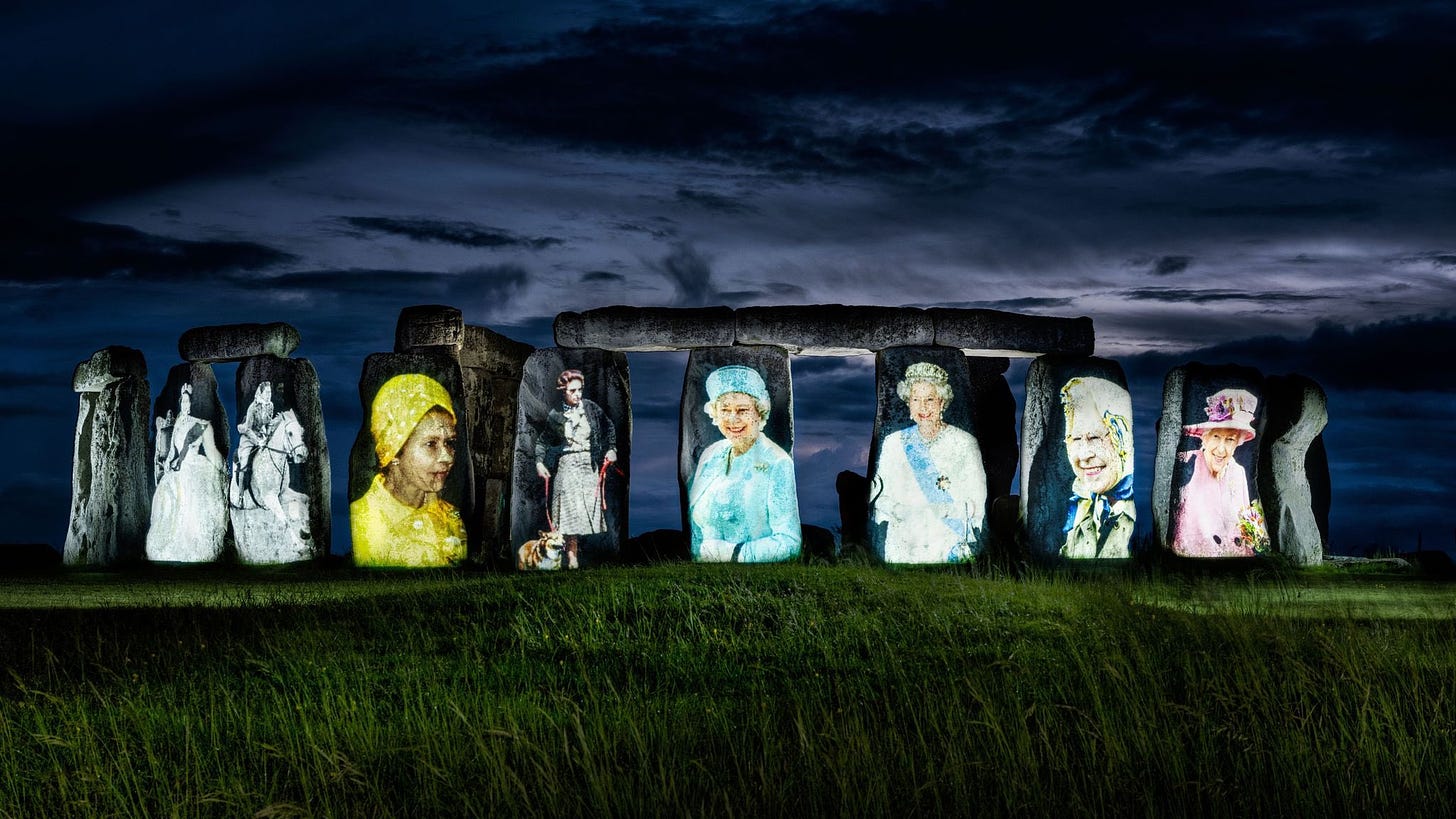Ludwig Wittgenstein was obviously not thinking of Brexit when he closed his Tractatus Logico-Philosophus with the famous observation ‘Whereof one cannot speak, thereof one must be silent.’ The Austrian-born philosopher was grappling with the idea that there are certain human experiences that cannot be expressed through language and that therefore the effort could not be made without doing an injustice to human experience.
Nevertheless, his observation is pertinent to our national predicament. For the last week the ongoing transformation of the UK into a JG Ballardian dystopia has continued apace. Three-hour tailbacks at Dover; dangerously unsafe queues at almost every airport - the annual pursuit of foreign pleasure in a country supposedly at peace with its neighbours has rarely been more fraught with difficulty.
Nor, as we have known for some time, has the pursuit of business. Last month Jaguar Land Rover announced that it was in talks with Northvolt AB and SVolt Energy Technology about supplying batteries for electric vehicles (EVs), whose assembly would take place in Slovakia, not the UK. According to a former chief executive of Aston Martin, these developments threaten a further decline in the UK car industry, which is no longer a member of the top 15 car-producing countries:
It's about to be too late to preserve the UK role as a major automotive producer. Unless there's either a carrot or a stick to incentivise battery production in the UK, it's only a matter of time before the automobile industry here becomes a niche industry that caters to brands such as Rolls-Royce and Bentley.
Not too many foodbank users will be driving those. Nor will many of the millions of people facing rising energy costs benefit if the Bank of America’s warnings that Sterling is in danger of becoming an ‘emerging market’ currency are realised.
Not all these developments can be attributed to Brexit. Ukraine, the pandemic, and related matters are all contributing factors. But Brexit runs through almost all these developments like a stick of rock. Brexit has reduced the ability of airline companies to recruit baggage handlers and airport staff. Brexit paperwork continually slows down traffic at Dover and other ports.
Brexit has increased export costs for small businesses and larger companies. The prospect of further Brexit tariffs is one reason why Jaguar Land Rover is talking about shifting battery production to Slovakia. The UK government’s sabre-rattling about the Northern Ireland Protocol has increased pressure on the pound by deterring investors.
The list goes on and on. In November last year, a report from Sussex University’s UK Trade Policy Observatory (UKTPO) found that the UK economy had taken a hit of £44 billion through lost trade with the EU in the first seven months of the UK-EU trade deal. In comparison, the new post-Brexit trade deals with Australia and New Zealand were projected to increase GDP by £200 and £500 million per annum - an annual boost of 0.01 to 0.02 percent and only after these deals are firmly embedded after fifteen years or more.
The UK Government’s own statistics in March found that the total trade in goods and services deficit had widened by £14.9 billion to £25.2 billion in the first quarter of this year, reaching the largest deficit since records began in 1997.
These facts flit through the national consciousness without ever reverberating in the way you would expect them to in a sensible country whose government had the best interests of its citizens at heart. And this is where we can paraphrase Wittgenstein and say that there are certain aspects of our national experience that are entirely related to Brexit, and yet no one wants to mention them.
Vacuum-Cleaner Brexit
This reluctance is not because language cannot express the inexpressible, but because Brexit is unsayable to the Johnson cabal and the Tory Party. Real world problems cannot be spoken about by a Vote Leave government that is more concerned with its own salvation than the real world, and a party hollowed out by a rightwing takeover that has transformed support for Brexit into the lodestone of what it means to be a Tory or even a loyal citizen.
This is why Johnson banned his cabinet from mentioning Brexit in 2020. The only legitimate uses of the ‘B’ word in Bertie Boosterland, are firstly, when it’s used to remind the public that Bertie Booster was the man who ‘Got Brexit Done’, even though the actions of his own government re Northern Ireland, make it clear that it isn’t ‘done’ at all. And secondly, when fatuous ministers wax lyrical about the ‘post-Brexit opportunities’ to be gained from high-speed vacuum cleaners and returning to imperial measurements.
Anything else is full-on omertà. Like the inhabitants of M. Night Shylaman’s The Village, Brexit problems have become the invisible terrors of which Tories dare not speak. No one can be surprised by this. The 2016 referendum was won because Leave campaigners pretended there would be no negative consequences for leaving the European Union. Any seeds of doubt would have threatened the vote, and to some extent their ongoing silence is a continuation of that.
To acknowledge post-Brexit problems now would risk exposing the dishonesty and delusion at the heart of the Brexit project in the first place. It might lead the public to ask unwelcome questions about why these problems are taking place when Brexiteers denied that they would ever happen, and what Brexiters did to prepare for them or plan for them, and what they propose to do about them now.
These are not questions that any Brexiter wants to answer, unless they can blame these negative outcomes on the EU. The hapless Tory MP for Dover Nathalie Elphicke might complain about the traffic at Dover, but don’t expect her to relate them to the Brexit that she voted for, and she isn’t the only one:



Faced with mushrooming problems that they helped to cause and have no idea how to solve, Brexiters prefer to turn on the people who mention them. This is one reason why Johnson’s lackeys have used Tobias Ellwood’s suggestion that the UK rejoin the Single Market to portray Tory critics of the Great Pretender as ‘Remoaners’ seeking to ‘overturn Brexit.’
Never mind the fact that Brexit is overturning itself. These are Brexiters who want Brexit this Christmas and every Christmas, even if the gift contains nothing but vacuum cleaners, blue passports and the crown on a pint glass. Unable or unwilling to address the disaster that they are responsible for, they prefer to poison the national conversation with toxic populist drivel, to the point when the Home Secretary can describe lawyers contesting her Rwanda removal policy as ‘anti-Brexit lawyers’.
This is what these people do, and if you look at it from their perspective, it’s what they must do. But what about the opposition? Given these increasingly dire outcomes, surely the main opposition party should be snapping at the government’s heels over this, pointing out its lies and failures, trying - like Ellwood - to help British farmers, fishermen, travellers and small businesses cope, and pointing out where necessary, the extent to which Brexit has caused or exacerbated their predicament?
No such luck. Terrified of falling into the Red Wall Brexit trap, the Labour Party has been almost as silent as the government, focussing on ‘making Brexit work’, without saying how, and referring to - wait for it -’post-Brexit opportunities’ while studiously ignoring post-Brexit negativities.
And how about the UK media? What about the state broadcaster? Can’t they ask the questions that politicians aren’t asking? They could, but with some exceptions, they prefer not to, and don’t draw the dots even when the outline of the picture is obvious.
No one can say this is healthy, and the irony is that the silence of the politicians and the media does not seem to reflect the public mood. According to a Statista poll last month 47 percent of the population believes that Brexit has gone badly, compared to 39 percent of the population that still thinks it was the right decision.
This may or may not suggest a certain momentum, but there is clearly a basis for a national conversation about what has gone wrong and how the multiple problems engendered by Brexit might be fixed. Such solutions might be on the lines that Tobias Ellwood has suggested, or they might be something else, but until we acknowledge the problems in the first place we can’t even begin to consider how to solve them.
In the meantime a complex and precarious democracy of 67 million people is being asked to shut its eyes to the act of gratuitous self-harm it has inflicted on itself, in order to protect a dishonest government and a clueless political class from ignominy.
In a country already facing the greatest fall in living standards since the war, this is like sailing towards the Titanic knowing where the ice berg is, or ignoring the fact that arsonists have set fire to your house. It’s no way for any country to run itself, and no country should ever have allowed such a thing to happen. Paralysed by incompetence, complicity or self-interest, our politicians want us to talk about anything except Brexit. They would like us to worship at the altar of the goddess Eliza-bet-ha and lose ourselves in the House of Windsor summer festival.
But beyond the bunting, the flag-waving, the pageantry and the manufactured patriotic fervour, there are no sunlit uplands waiting for us, only an endless series of crises made so much worse by the problems that we refuse to speak about.




